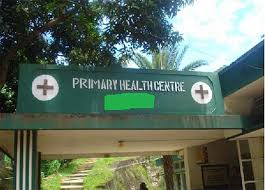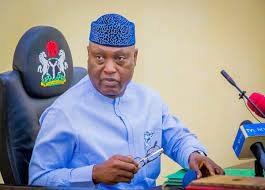The Coordinating Minister of Health and Social Welfare, Prof. Ali Pate, has said the drive to revitalise the health sector “remains steadfast.”
He said this Friday in Abuja while highlighting the Ministry’s achievements at the on-going Ministerial Sectoral briefing.
Pate said further that the government had demonstrated its commitment to the sector “by substantially increasing budgetary allocations to health for the first time in a long while; this increased funding underscores the sector’s prioritisation and signals a new era of investment in the nation’s health infrastructure.”
He also disclosed that the past 12 months had seen “significant accomplishments with the vigorous implementation of the Four-point Agenda by the ministers of Health and Social Welfare, supported by the Nigeria Health Sector Renewal Compact between the federal government, 36 state governments, and development partners, yielding tangible and intangible results.”
He said President Tinubu’s prioritisation of health, proactive approach to addressing challenges, and determination to achieve Universal Health Coverage (UHC) have earned him recognition as the African champion for human resources for health and community health delivery by the African Union (AU).
“This has also attracted foreign direct investment (FDI) to the sector, which was previously unappealing to foreign investors and development partners.
“Furthermore, an Executive Order, currently finalised and awaiting the President’s signature, will streamline the importation of raw materials and equipment for pharmaceuticals and medical devices, reducing barriers and enabling the country to drive the market in Nigeria and the African continent, thereby reducing dependence on imports.
Over the past 12 months, investments have been made in both primary and tertiary healthcare institutions, making quality healthcare services more accessible and affordable for Nigerians.”
According to him, “The signing of a strategic compact by President Tinubu, the 36 states, the Federal Capital Territory (FCT), and development partners during the launch of the Health Sector Renewal Investment Initiative (SWAp) in December 2023 underscores the government’s determination to drive meaningful change in the sector.
“For the first time, our development partners signed a Compact governing our joint operations with them. This also included the private sector and civil society.
“At that event, our partners pledged $3 billion, reflecting their confidence in Mr. President’s agenda. Of this pledge, we have signed a $932 million grant with GFATM, $200 million with a philanthropic foundation, and expecting an additional $60 million in grants, $150 million announced by the Gavi Alliance, in addition to a US$1 billion facility governed by MOU signed with Afreximbank.
“We have begun to strengthen the regulatory framework within the sector. There are 16 professional regulatory bodies and other regulators of pharmaceuticals, such as NAFDAC, pharmaceutical council, medical laboratories, medical and dental council, nursing and midwifery council, and other aspects of the ministry’s stewardship role that we have repositioned and reinvigorated their leadership.
“These issues were addressed through the National Economic Council and the Governors’ Forum. Our governors have been instrumental in aligning with the President’s vision for increasing investments in the health sector.
“Regarding the revitalisation of primary health care, which aligns with the president’s directive, I am pleased to report that N260 billion is already currently available at the state level for this purpose through International Development Association (IDA) financing and the BHCPF.”
Vaccination
“The nation has also recorded groundbreaking feats in preventive measures. Over five million Nigerian children have been vaccinated against diphtheria using pentavalent vaccine. More than 10 million Nigerian children received the tetanus and diphtheria vaccines.
“We are working hard to stop the circulating variant polioviruses showing up in Kano, Katsina, Sokoto, Zamfara, and Kebbi states.
“We have delivered measles vaccines to more than five million children to protect them against measles, and 4.95 million girls 9-14 years in 15 states have received HPV vaccines to protect them against cervical cancer, representing 80% target, among the highest in the world. Six million more are planned to receive the vaccines in the next phase for 21 states starting from May 27, 2024.”




